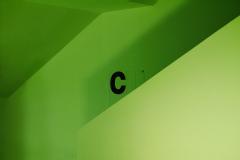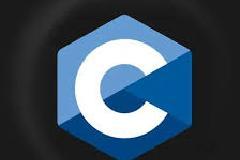1. Introduction to C Programming
- Overview of C: History, importance, and applications of C.
- Setting Up Environment: Installing a compiler (GCC, Clang) and an IDE (Code::Blocks, Visual Studio Code).
- Basic Syntax and Structure: Understanding the structure of a C program, including headers, main function, and basic output (using
printf).
2. Basic Data Types and Operators
- Data Types: int, float, double, char, and their usage.
- Operators: Arithmetic, relational, logical, bitwise, and assignment operators.
- Type Casting: Implicit and explicit type conversion.
3. Control Structures
- Conditionals: if, if-else, and switch-case statements.
- Loops: for, while, and do-while loops. Using loops for iteration and recursion basics.
4. Functions
- Defining Functions: Syntax, parameters, return types.
- Function Prototypes: Declaration and definition.
- Scope and Lifetime: Local vs. global variables, static variables.
- Recursion: Understanding and implementing recursive functions.
5. Arrays and Strings
- Arrays: Definition, initialization, and accessing elements. Multi-dimensional arrays.
- Strings: String manipulation, functions in
6. Pointers
- Introduction to Pointers: Basics of pointers, pointer arithmetic.
- Pointer Variables: Declaration, dereferencing, and null pointers.
- Pointers and Functions: Passing pointers to functions, return pointers from functions.
- Dynamic Memory Allocation: Using
malloc,calloc,realloc, andfree.
7. Structures and Unions
- Structures: Definition, initialization, accessing members, and nested structures.
- Unions: Definition and use cases.
- Enumerations: Definition and usage of
enum.
8. File Handling
- File Operations: Opening, closing, reading, and writing files using
fopen,fclose,fread,fwrite,fprintf, andfscanf. - Error Handling: Checking for file I/O errors and handling exceptions.
9. Advanced Topics
- Bit Manipulation: Bitwise operations and their applications.
- Preprocessor Directives: Understanding macros,
#define,#include,#ifdef, and#ifndef. - Dynamic Data Structures: Introduction to linked lists, basic operations (insertion, deletion, traversal).
10. Algorithms and Data Structures
- Sorting Algorithms: Bubble sort, selection sort, insertion sort, merge sort, quick sort.
- Searching Algorithms: Linear search, binary search.
- Stacks and Queues: Implementation using arrays and linked lists.
11. Modular Programming
- Header Files: Creating and using header files for modularity.
- Libraries: Understanding static and dynamic libraries. Linking libraries to programs.
12. Debugging and Testing
- Debugging Techniques: Using debuggers (GDB), common debugging practices.
- Testing: Writing test cases, validating code with various inputs.
13. Best Practices
- Code Style: Adhering to coding standards and best practices.
- Documentation: Writing comments and documentation for code clarity.
- Optimization: Basic techniques for optimizing code performance.
14. Practical Projects
- Simple Projects: Developing small applications to consolidate learning, such as a calculator, a basic file reader, or a text-based game.
- Capstone Project: A larger project integrating multiple concepts, such as a mini-database management system or a simple graphical application (using libraries like SDL).







